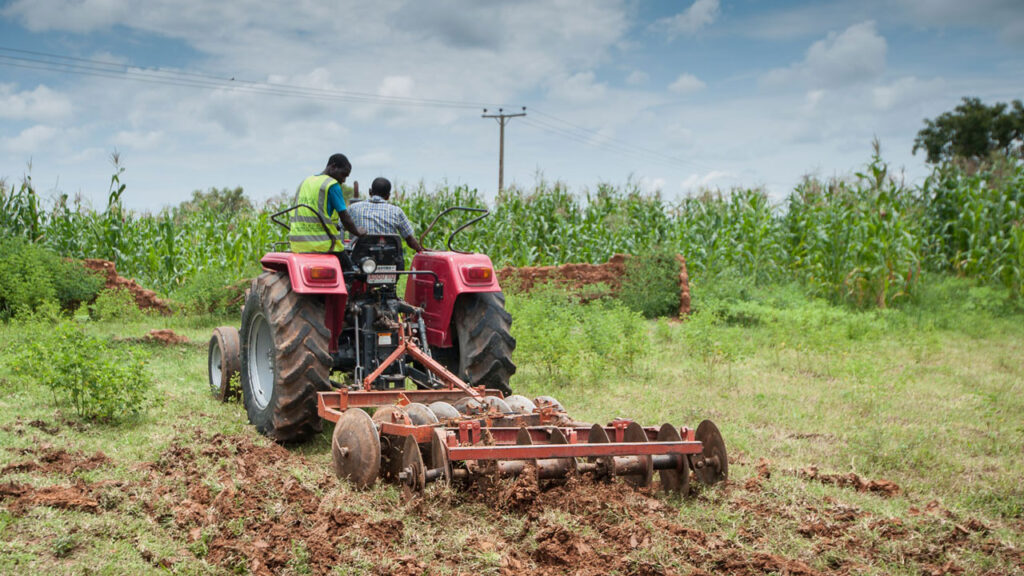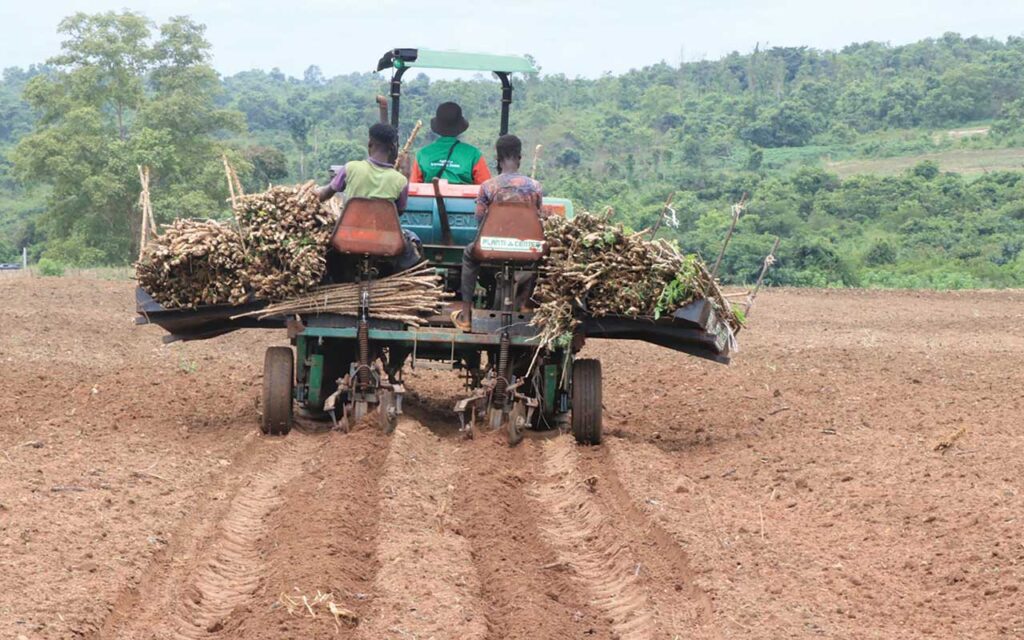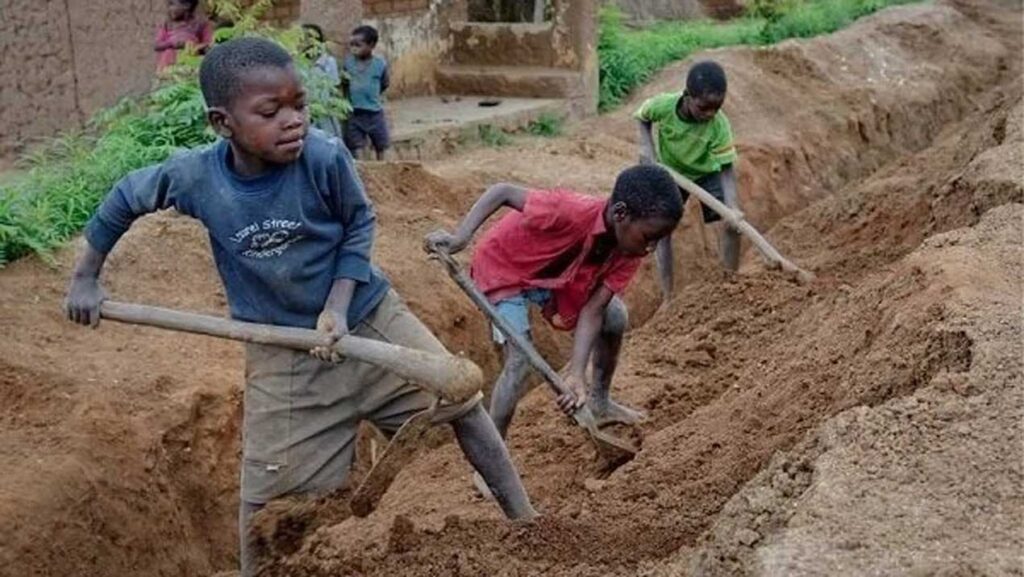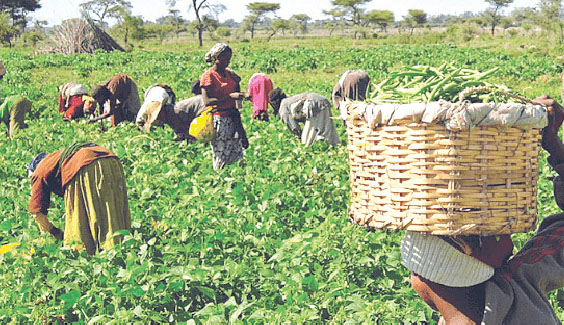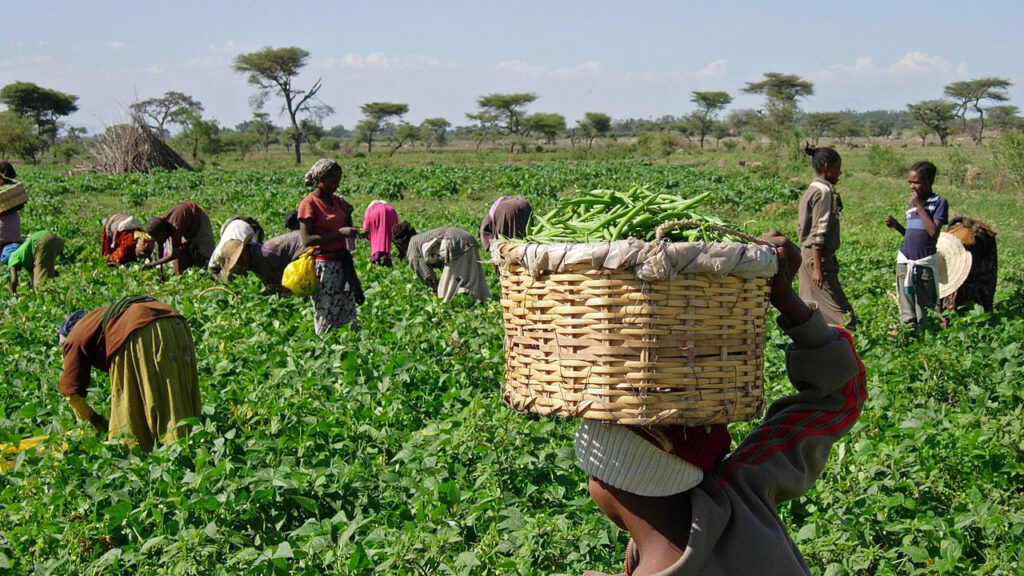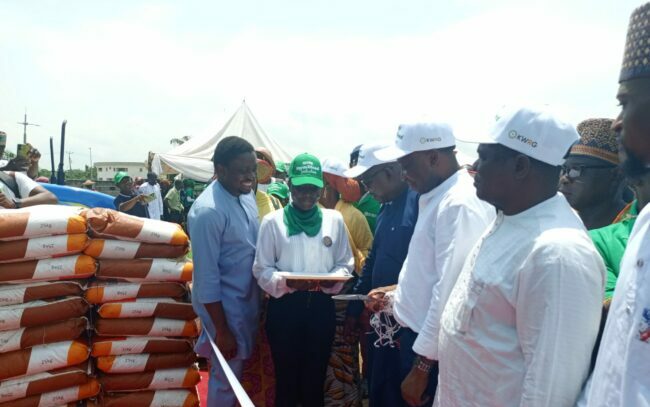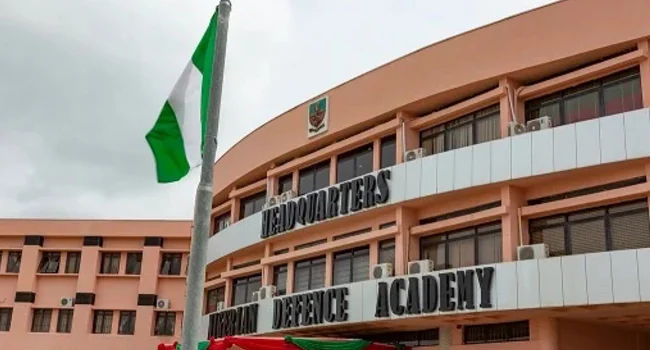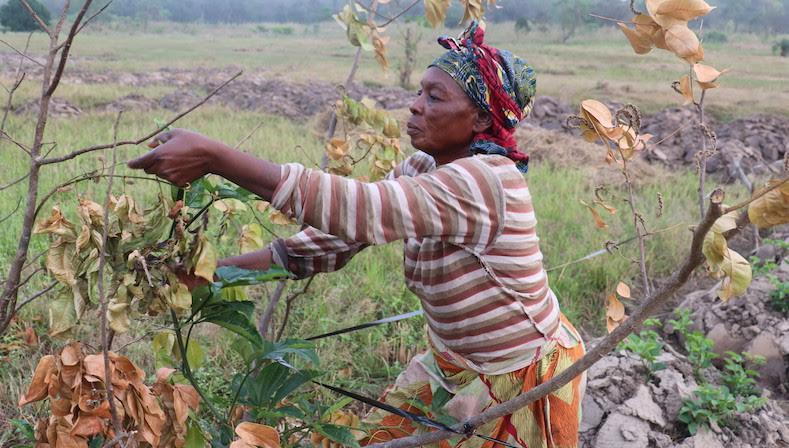The impact of climate change on farming activities across the country is gradually being felt. Several farmers are currently at a crossroad on how to tackle this challenge, as weather patterns are no longer predictable, JOKE FALAJU reports.
Mohammed Awal, a tomato farmer from Kano State, lost about N2.7m this year, to the impact of heatwaves that destroyed his hectares of tomato plantation
His experience between February and April was something that had never been recorded before since he started farming, considering the level of devastation wrecked on his farm.
Not only did he record loss in his tomato farm, Awal also lost millions of Naira from his maize farm cultivated during the dry season, as a result of the heat waves.
A farmer from the Federal Capital Territory, Abuja, Douglas Eke, also recounted how he was unable to participate in the wet season farming this year due to the delayed onset of rainfall.
The unpalatable experiences of these farmers, summarises the impact of climate change on farming activities across the country. Several farmers are currently at a cross road on how to tackle the ripple impact of climate change on their farms, as the weather patterns are no longer predictable like in the past.
Awal told The Guardian that Kano used to experience six months of rainfall in time past, but in recent time, it’s no longer so. He said in 2023, the last rain experienced was in September, which caused significant damage to their crops, especially beans.
Nigerians have continued to raise concern over the escalating prices of foodstuff as the food inflation rate for May 2024 stands at 40.66 per cent on a year-on-year basis, which is higher than the 24.82 per cent recorded in May 2023 and the 40.53 per cent recorded in April 2024.
Based on this development, it was gathered that aside factors like insecurity, and the removal of fuel subsidy, which has negatively impacted cultivation of food crops, climate change is also playing a major role.
The Director of Health, Mother Earth Foundation, Nninmo Bassey, who was speaking during the launch of the Nigeria Socio-ecology Alternatives Charter in Abuja, had raised concerns over the kids gloves with which the Federal Government has been handling the climate change crisis.
He pointed out that although Nigeria is fortunate to have been bestowed with an exceptional climate and ecosystem, but its natural habitat is currently facing a crucial turning point due to the worsening effects of human, causing climate change and biodiversity loss occasioned by destructive extraction.
The Guardian learnt that years of unchecked and inadequately monitored mineral extraction, deliberate destruction of the environment in the pursuit of urbanisation and industrialisation, ineffective policy making and enforcement, and the growing consequences of climate change have all come together to pose grave ecological challenges to the country.
It was gathered that across every area, as the ecosystems are declining, communities are facing grave danger, and the future is increasing uncertainty.
Bassey pointed out that in 11 states – Sokoto, Katsina, Zamfara, Kebbi, Jigawa, Kano, Borno, Yobe, Gombe, Bauchi and Adamawa, there have been increasing spate of drought and desertification disrupting fishing, farming and herding livelihoods, driving a significant number of the population down the poverty ladder.
This challenge has also resulted in severe health, sanitation and nutrition risks. In addition to this, is the overall poverty and uncertainty engendered by drought-induced crop failures and water shortages, forced rural migration triggering conflicts and creating socio-economic challenges.
Elsewhere in the country, floods have become a near-yearly occurrence. Since 2012, the pattern of severe flooding had persisted, with major incidents occurring almost yearly. These floods are often attributed to heavy and prolonged rainfall, poor urban drainage systems, deforestation, and the release of water from dams.
According to official government reports, the 2022 floods displaced over 1.4 million people, killed over 603 people, injured more than 2,400 people, destroyed 82,035 houses and inundated 332,327 hectares of land. The estimated economic loss occasioned by the flood was put at $9.12b or N4.2tr.
On the eastern landscape, Nigeria is recording an unprecedented rate of deforestation. This is driven mainly by logging for timber and clearing land for industrial agriculture. According to the United Nations, Nigeria has the world’s highest and fastest rate of deforestation, with an estimated 3.7 per cent of its forests destroyed each year.
Nigeria’s forest cover has drastically reduced from about 40 per cent in the 1960s to less than 10 per cent. With the increasing spate of deforestation, the scenario is much worse today. Deforestation threatens biodiversity, disrupts community livelihoods, threatens wildlife and contributes to climate change.
While stating that Nigeria is one huge ecological time bomb, Bassey stressed that it is imperative that stakeholders in the sector address the pressing ecological crises that Nigeria faces. “We must take deliberate, fundamental, and radical action to mitigate the evident and growing consequences of the crises.”
To mitigate these challenges, the Nigeria Socio Ecological Alternatives Convergence with the civil society organisations, frontline communities, activists and academics, came up with a chatter to serve a to-do-list to drive an alternative ecological blueprint for Nigeria.
The alternative ecological approach is such that respects the right of mother earth, and protects the planet and its people. The Charter outlines a vision and plan for creating a sustainable, fair, and balanced society that prioritises the well-being of individuals and the preservation of the natural world.
On recommendations on how to tackle the issue of drought, the charter demanded that, government should implement large-scale tree planting programmes to combat desertification and restore soil fertility and local economies. Trees act as natural barriers against expanding desertification, while improving soil moisture and regeneration.”
On the issue of floods, the convergence noted that as the impacts intensify, the government continues to fail in designing responses that are both effective and sustainable. It was revealed that the response of governments has largely been through skeletal emergency relief and early warnings.
These measures have often been inefficient and insufficient to fully mitigate the impacts of floods, as when flood warnings are broadcast, there are no corresponding efforts to support communities in need of relocation and survival.
Findings also indicate that 89.6 per cent of households did not receive any support, only 19.7 per cent of the households affected by the 2022 floods reported that they were aware of government warnings about floods, with only 8.3 per cent being able to evacuate before the floods.
While urging government to protect wetlands, they demanded that governments at all levels go beyond the routine announcements of impending floods without any corresponding assistance for communities to relocate or survive the floods such.
Beyond making promises in global spaces on cutting emissions, they called on government to make plans to wean the economy off its
dependence on fossil fuels. In the interim, the government should introduce a moratorium on all new fossil projects including new oil licenses and leases.
The body further demanded that governments at all levels must resist pressure from international financial institutions to commercialise the water sector, as they must prevent the commercialisation of water by reinforcing public ownership of water infrastructure, prioritising public access to safe, clean and affordable water, recognising access to Water as Human Right, as well as enforcement of existing legislations that criminalise the pollution of water bodies, including through exposure to hydrocarbons or waste dumping.
They called on the government to encourage the adoption of agro-ecological farming and integrated pest management techniquespractices, which promote biodiversity conservation, soil health, and sustainable agriculture, as well as support small-scale farmers with training, resources, and incentives to implement agro-forestry, organic farming, and crop diversification among others.

